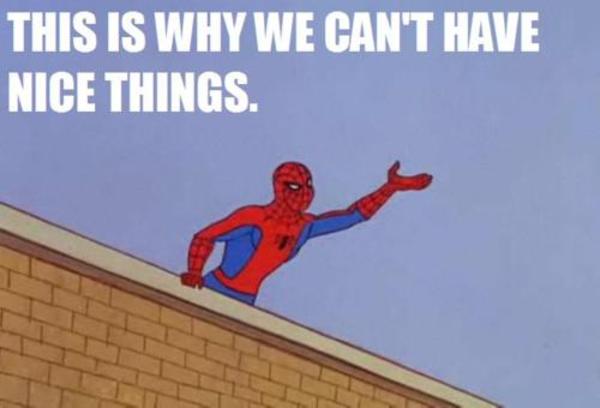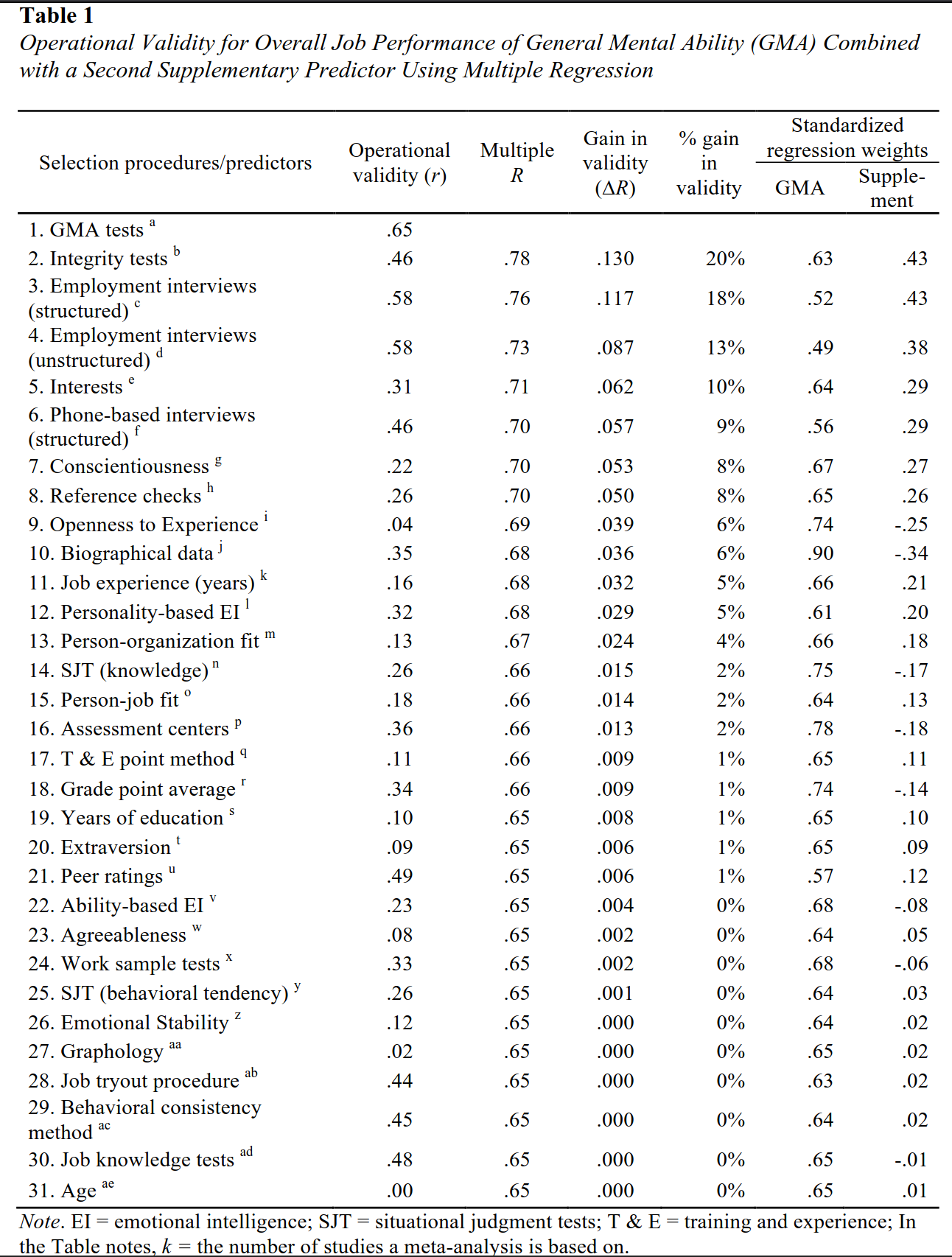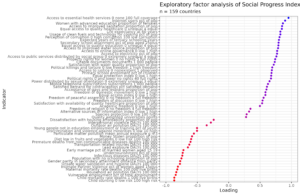We have yet another high profile case of a police beating in the USA, so it seems useful to talk about why we can’t have nice things.
First, let’s step back. What causes police beatings? Most obviously, getting beat up by the police is mostly caused by people acting poorly and the police having to deal with the matter. Sometimes people get beat up without acting poorly, or at least, not poorly enough to deserve the violence they received in return. The media loves these stories and mostly ignores the standard, common ones. Man bites dog stuff.
So let’s focus on the unjustifiable police beatings. These are really just a case of poor job performance. The job of the police is to keep public order, enforce laws, and when needed, deal with violent people using violence. Doing this poorly results in deaths of citizens at times. So what predicts job performance of policemen? We do have a good idea of this because predictors — and causes — of job performance have been studied for many decades, given the interest of companies in having better performing employees. The gold standard reviews go something like this:
- Schmidt, F. L., Oh, I. S., & Shaffer, J. A. (2016). The validity and utility of selection methods in personnel psychology: Practical and theoretical implications of 100 years. Fox School of Business Research Paper, 1-74.
This paper summarizes the practical and theoretical implications of 100 years of research in personnel selection. On the basis of meta-analytic findings, this paper presents the validity of 31 procedures for predicting job performance and the validity of paired combinations of general mental ability (GMA) and the 29 other selection procedures. Similar analyses are presented for 16 predictors of performance in job training programs. Overall, the two combinations with the highest multivariate validity and utility for predicting job performance were GMA plus an integrity test (mean validity of .78) and GMA plus a structured interview (mean validity of .76). Similar results were obtained for these two combinations in the prediction of performance in job training programs. A further advantage of these two combinations is that they can be used for both entry level hiring and selection of experienced job applicants. The practical utility implications of these summary findings are substantial. The implications of these research findings for the development of theories of job performance are discussed.
“GMA” here being the field’s designated euphemism for intelligence (g).
So this is the big table of results. The key idea here is that intelligence is the main cause of job performance, but not the only one. So they consider the scenario where a company wants to combine an intelligence test with one other method of selection, like an interview, years of education, personality self-report, or even hand-writing analysis (graphology). The table is based on using a lot of regressions to figure out the added validity of the second method on top of intelligence, adjusted for measurement reliability.
So if policemen were hired using these approaches, their average level of job performance would be improved probably quite a bit. But they don’t do this because of the usual ‘civil rights’ law reasons. The TL;DR is that people used to hire police like this, but then their work forces were too White, and this was bad according to the media and academics and especially the lawyers. So they were then ordered by the relevant politicians or courts to do something else. They then introduced some newer, worse methods for hiring which they generally pretend are equally valid — what else are they going to tell the public? Linda Gottfredson wrote about one famous case of this happening back in 1996:
-
Gottfredson, L. S. (1996). Racially gerrymandering the content of police tests to satisfy the US Justice Department: A case study. Psychology, Public Policy, and Law, 2(3-4), 418.
Discrimination law and its aggressive enforcement by the U.S. Department of Justice both falsely assume that all racial-ethnic groups would pass job-related, unbiased employment tests at the same rate. Unreasonable law and enforcement create pressure for personnel psychologists to violate professional principles and lower the merit relatedness of tests in the service of race-based goals. This article illustrates such a case by describing how the content of a police entrance examination in Nassau County, New York, was stripped of crucial cognitive demands to change the racial composition of the applicants who seemed most qualified. The test was thereby rendered nearly worthless for actually making such determinations. The article concludes by examining the implications of the case for policing in Nassau County, Congressional oversight of Justice Department activities, and psychology’s role in helping its members to avoid such coercion.
There’s even an amusing situation of a White applicant not getting hired for the job because his intelligence was too high at 125. He sued in court and of course lost. Granted, this is from 1999, and I can’t find any replications, but who knows? Anyway, things haven’t improved since the 1990s, as public ignorance of race differences in intelligence are now larger than ever. We might therefore be tempted to predict that the intelligence level of police officers has been gradually falling for a couple of decades. Indeed, there is some old recruitment data from New York to back this up. The New York Times tells us in 1970:
The average I.Q. scores of recruits entering the Police Department here in 1969 were the lowest recorded in recent years, according to a study financed by the Justice Department.
The average score of the 2,075 men brought into the department in four classes last year was 98.20, with one class of 358 men averaging 93.19. The average was 107.7 in 1962, 107.28 in 1964 and 105.75 in 1967.
Although police experts are divided over the question whether the decline in I.Q. scores will mean a decline in police services, the authors of the study were concerned enough about the drop to use it as major element in their argument for changing departmental training methods.
Some police departments, such as the one in Los Angeles, say they will not take men with I.Q.’s under 110, accord ng to Dr. Nelson Watson, director of the professional standards division of the International Association of Chiefs of Police.
There’s also numerous reports of police officers now being hired with extensive criminal records, which is a bit of a no-brainer to avoid.
Putting the pieces together we can therefore reason:
- Reducing recruitment standards into the police due to woke laws leads to lower job performance among police officers.
- Lower job performance among police officers leads to more police beatings and killings.
- Police beatings and killings will disproportionately be of Blacks as their dodgy behavior brings them into contact with the police much more often, and brings suspicion on the well-behaved members of the group.
- So, the attempt to help Blacks by getting them jobs in the police results in police officers killing more Blacks due to job incompetence.
For more reading on police and race etc. see:


